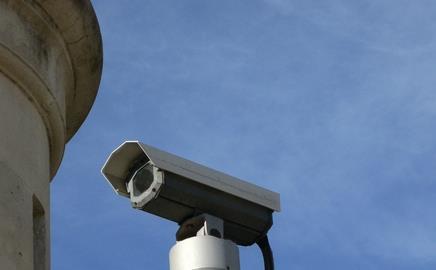Thieves tend to regard building sites as large, open air supermarkets where they can walk in and simply help themselves – bypassing the check-out tills, of course. But there are ways of thwarting them …
Broadly speaking, the more valuable, transportable or readily disposable a building site’s contents, the more effort criminals will go to to nick them and the more extensive protection needs to be.
The right security requires an awareness of all the cost-effective options available – police crime prevention officers, insurers and reputable security firms will provide such information free of charge, in most cases. It pays to take that advice.
So what must site operators consider?
Security awareness
Personnel throughout an organisation, starting at the top, need to understand fully the implications of poor security. Simple measures can raise awareness, such as staff being encouraged to challenge those on site who do not have the correct identification; confidential reporting systems for suspicious incidents, and individuals taking responsibility for company assets – if equipment is lost through negligence, they would be responsible for replacing it or face disciplinary action.
Physical security
Perimeter fencing, intruder alarms, the use of a suitable guard force and CCTV systems can all enhance security of a site, however, these will only be effective if managed properly. A CCTV system is of little use if cameras are out of focus, poorly positioned or if the data is not checked regularly. Remote monitoring is preferable – relying on a recording device located on site is asking for trouble, as thieves can steal it.
A secure, well-maintained perimeter fence, with warning signs will set the scene and show that security is taken seriously. Exits and entrances should be kept to a minimum, and random searches at these points will act as a deterrent.
Security personnel can be beneficial but require careful selection to ensure that you are not merely employing bodies in uniform as opposed to a motivated guard force. Consider using a combination of skills and ensure that security staff know what to look for: a common scam involves concealing the true contents of truck loads, particularly relevant in excavation jobs, where crooked operators will seek to avoid paying landfill charges. This type of industry knowledge is vital to the effectiveness of any security team.
Intruder alarm systems should be capable of detecting motion, and activate CCTV, lights, sound alarms or automatically contact a monitoring station.
Lighting
Security personnel can be beneficial but require careful selection to ensure that you are not merely employing bodies in uniform
Offices, equipment storage areas and yards should be well lit. Site lighting should be motion-activated to give the impression that an intrusion has been detected, lights coming on in the middle of the night may also alert neighbours, who can call the police.
Plant and equipment
Plant should be kept in a security compound and immobilised when not in use. Keys should be removed from all unattended plant and VIN, serial and engine numbers logged. The use of security locks, immobilisers, fuel/ignition cut outs, clamps and ground fixings will deter thieves.
Tools left on site overnight should be kept in locked tool stores and checked out and checked back in each day. Making an individual responsible for the tool will make it less likely to “disappear”. Equipment such as scaffolding poles and ladders must be secured as these items may assist criminals in breaking into secure areas.
To discourage theft, mark company and personal items by stamping, etching, engraving, sandblasting or using ultraviolet lacquer. This increases the likelihood of recovery by the police if they are lost or stolen and prevents disputes over ownership.
Protect likely targets
White goods, steel, cable and fittings are frequently targeted. Good housekeeping at site will go some way to ensuring that material is not readily available to those looking to steal. Deliveries should be timed for the day of installation; deliveries late in the week give criminals the whole weekend to steal them. If this is not possible, partially install appliances and fittings.
Due diligence
Are all your staff, contractors and suppliers 100% trustworthy? Background checks should be carried out, looking at references and the right to work in the UK; a good vetting standard to adhere to is BS 7858:2006.
Suppliers should provide evidence that they are credible businesses, and regular audits of tender and bidding processes should be carried out to ensure that systems are robust and not subject to unethical influences.
Postscript
Gavin McCormick is special projects manager at security and risk specialist Linx International

























No comments yet